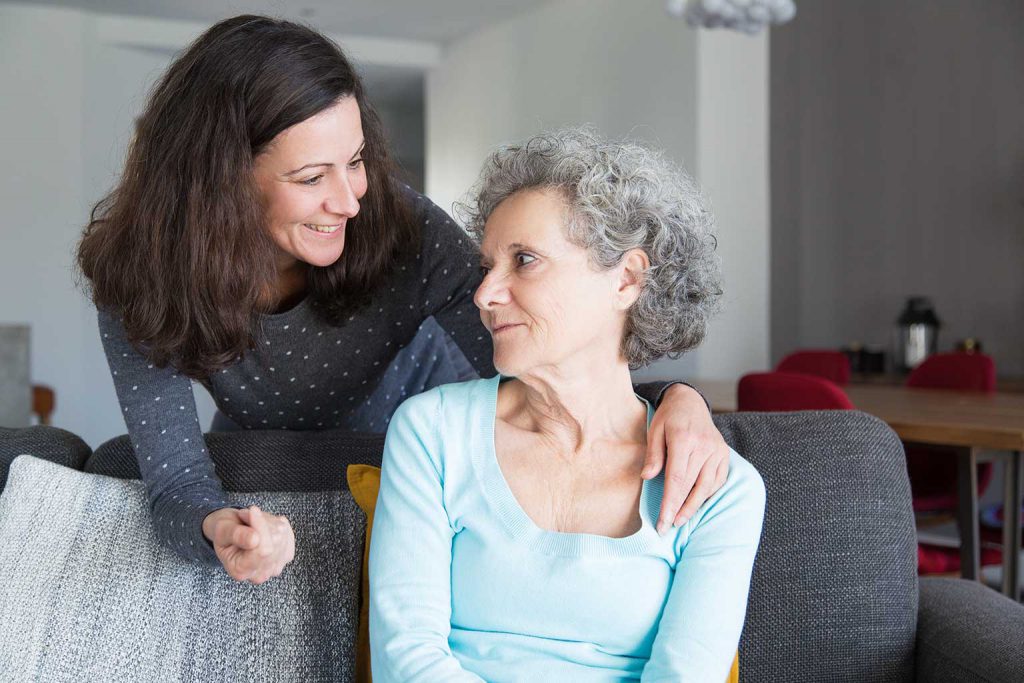Knowing that your aging parent is diagnosed with cancer can be really shocking. For all those years, they have always been your source of inspiration and peace of mind in your life will now need your support as they go through many decisions for their cancer treatment journey. Despite your feelings of overwhelming and distress throughout the cancer treatment of your parent, there are plenty of things you can do to reach the exit of this life or death maze.
Here we have put together some practical tips you can follow to help your elderly parents with cancer.
Table of contents

1. Allow your parent to start cancer talks
Some family members speak about cancer with their aging parents all the time, while others only have cancer conversations when they visit their doctor. It is recommended that you let your parents with cancer lead daily talks about their cancer. It is true that sometimes you need to be the one who initiates the topic when you need to speak about how you are going to treat the medical condition. However, it is best to be a follower in this case just to make things less worrying and everyone feels more comfortable.
2. Be a Great Listener and Take Notes
Many doctors suggest that as a family member you need to listen to where your elderly parents with cancer are at and to what they truly need from you. Different things are required for different aging parents. Some need more emotional support and comfort whereas others just want to write down an organized schedule and others don’t want any help as they want to control their own situation by themselves.
When your senior parents with cancer meet their doctor, they can be so stressed and overwhelmed that they probably remember only some parts of the cancer treatment plans. It would be great if they are open to you sitting in on oncologist meetings with them. If this is the case, you are advised to take as many notes as possible whether physically (with a pen and paper or digitally (smartphone or laptop). The notes should be about the oncologist’s plan, objectives and next steps you and your parents need to take. These things include details such as medication timing and side effects of the medication.
3. Make an Organized Plan of Action
You do not need to rush to help your aging parent with cancer. Otherwise, the rush may change into stress. If many family members will be there to assist, plan who will be in charge of what and when. A great approach to this is to create a Google Calendar or Excel spreadsheet to share with other members in the family so that you can update the appointments and things to do real-time. It is convenient in that family members can also sign up to take on specific things your parents need.
If you have no financial issues, consider including home care in your plan. Take into account hiring a certified nursing assistant (CNA) or a visiting nursing assistant (VNA). They will be able to cope with IV medications and cater to other medical needs in the comfort of the home of your parents.
4. Always be Kind, Patient and Empathetic
Be proactive rather than reactive! Make various offers to help your parents. For instance, you can hire a maid to help with cleaning the house and let your parents know and say to them that they can tell the maid to do things however they see appropriate. The choice is theirs. By doing this, you can be of great help to your parents and get rid of the burden off them so your parents have no need to think of ways to put you to work themselves.
Although making your parents with cancer something to eat, especially if they need to have chemotherapy, can be frustrating, the key to this is to remain patient and to understand your parents’ sufferings. How would you feel if you were diagnosed with cancer yourself?

5. Give your parent notes of encouragement
Writing physical notes or texting messages to cheer your parents on their first day of cancer treatment is an excellent method of sharing encouragement and good intentions with them. It is a great alternative to expressing your emotions to your parents in a verbal manner.
6. Come up with Educated Questions
Be bold to speak up and ask your parents’ doctor the following well-thought relevant questions about their cancer:
1. Exactly what kind of cancer do your aging parents have?
2. How do they get a copy of my pathology report?
3. Where is the cancer located?
4. Has the cancer spread beyond where it started?
5. What’s the cancer’s stage? What does that mean?
6. How does this affect their treatment choices and long-term outcome (prognosis)?
7. What are their chances of survival, based on their cancer as you (doctor) see it?
8. How much experience do you have treating this type of cancer?
9. Will they need other tests before we can decide on treatment?
10. What are their treatment alternatives?
11. What treatment do you recommend and why?
12. What’s the goal of their treatment?
13. Should I think about genetic testing?
14. Should I get a second opinion? How do I do that?
15. Should I think about taking part in a clinical trial?
Just nodding and saying ‘yes’ without fully understanding what your parents are hearing or being told is happening — and if you are uncertain about something, your parents may be as well.
Takeaway
On the whole, implementing some or all of these six tips is important in making your parents with cancer happy during the journey of cancer treatment. It will make them have positive thoughts about treating cancer and realize that you are always there to take great care of them with whatever they need and whenever they need you.


